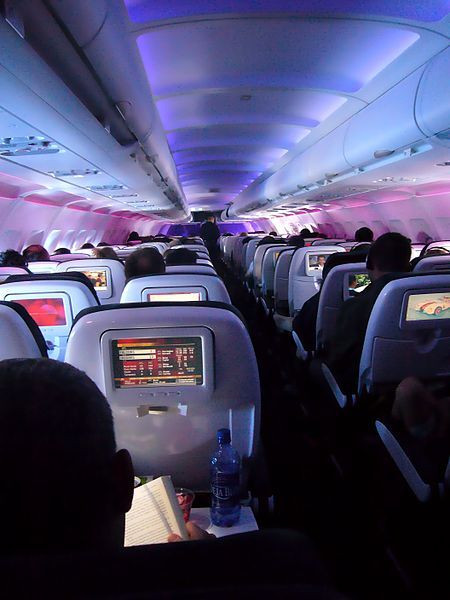Jet Lag Cure Could Lie In Newly Discovered Gene

Traveling from one time zone to the other, or simply having an occupation that requires you to work the night shift or a rotating shift, could disturb the body’s biological clock. According to the American Sleep Association, approximately 93 percent of all travelers will experience jet lag at some point, and it may take the body one day per time zone crossed to recover and slowly adjust to the time changes. Shift workers like travelers are prone to sleepiness and fatigue, and could possibly suffer from sleep disorders because of working non-traditional hours (outside a 9 p.m. to 5 p.m. shift). Sixteen percent of Americans and Europeans in the workforce take some form of shift work, and are more susceptible to developing a series of diseases and mental disorders. While the body clock is responsible for keeping humans functioning on a 24-hour cycle, the discovery of SIK1 — a protein product found in a gene — may help to determine why the body clock is slow to adjust to time changes, according to a new study.
Findings published online in the journal Cell possibly unveil a cure for jet lag and shift work disorders. A team of researchers, including Giles Duffield, associate professor of biological sciences at University of Notre Dame, and Kevin Flanagan, a doctoral student at Washington University in St. Louis, was led by senior research scientist Stuart Peirson from the Nuffield Department of Clinical Neurosciences to identify genes in the body that affect the body clock.
The researchers identified approximately 100 genes that the body switches on in response to light. These body switches initiate the process that leads to the retuning of the body clock. SIK1, a protein product identified in a gene, was found to impair the body clock’s ability to adapt to changes in daily patterns of light and dark, reports Medical Xpress.
In an experiment with laboratory mice, researchers blocked the activity of SIK1. The mice were found to adjust more quickly to the changes in the daily patterns of light and dark that were set to resemble those of a time zone change. “The study proposes that the light-stimulated production of SIK1 in turn switches off the molecular pathway that feeds into the clock mechanism, thereby halting the shifting response of the biological clock," the researchers wrote. Overall, the researchers found that the SIK1 protein delays the body clock’s shifting response to time changes, and therefore causes complications for travelers and shift workers.
"It would appear that SIK1 plays a common role in our circadian clocks found throughout our body, and working as a hand-brake on our ability to shift our biorhythms and adjust to new time zones, whether these are real or artificial, such as those produced during shift work schedules,” said Duffield.
The biological clock, or body clock, controls the circadian rhythms of the body. This is based on roughly a 24-hour cycle of physical, mental, and behavioral changes that determine sleep patterns and are responsible for jet lag, says LiveScience. These rhythms even influence hormone production, hunger, cell regeneration, and body temperature. The disruption of your normal circadian rhythm could possibly leave you susceptible to developing health complications later in life.
These disruptions are linked to many diseases including but not limited to diabetes, heart disease, and cancer, noted the researchers of the study. Mental disorders such as schizophrenia, bipolar disorder, and seasonal affective disorder are also associated with frequent disturbances of the body clock. "It would appear that SIK1 plays a common role in our circadian clocks found throughout our body, and working as a hand-brake on our ability to shift our biorhythms and adjust to new time zones, whether these are real or artificial, such as those produced during shift work schedules," said Duffield.
The discovery of the role that SIK1 plays in the body clock welcomes the possible innovation of a new drug that can treat jet lag and shift work disorders. This drug could potentially protect against diseases and mental disorders that are brought on by disturbances of the circadian rhythms.
For natural remedies to treat jet lag, visit Mayo Clinic.



























